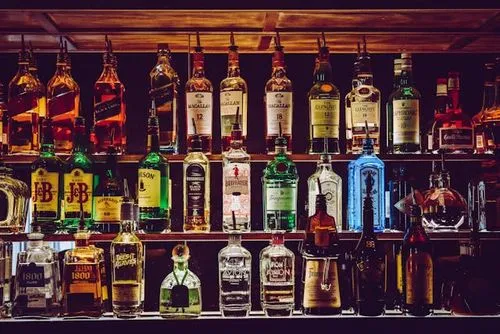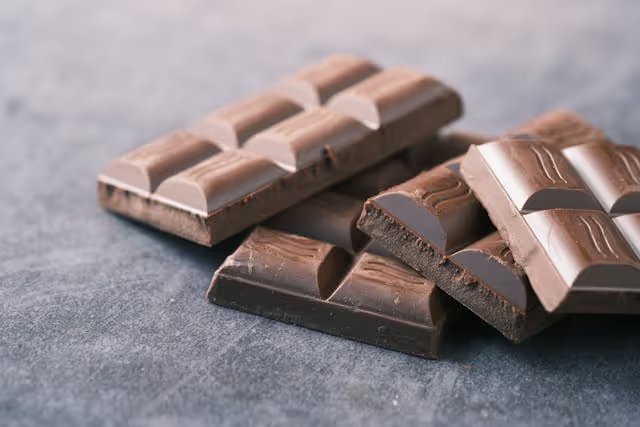Alcohol and Dehydration
Understanding the Relationship Between Alcohol and Dehydration
Alcohol consumption is often associated with dehydration. When alcohol enters the body, it affects the body’s natural hydration levels. To understand this relationship, let’s explore how alcohol impacts hydration.

Does Alcohol Dehydrate You?
Yes, alcohol does have a dehydrating effect on the body. When you consume alcoholic beverages, several factors contribute to this dehydration effect. First, alcohol is a diuretic, meaning it increases urine production. This can lead to a higher frequency of urination and the loss of fluids from the body.
Additionally, alcohol inhibits the release of an anti-diuretic hormone called vasopressin. This hormone helps the body retain water by reducing urine production. When alcohol suppresses vasopressin, the body loses more water through increased urine output.
To illustrate the dehydrating effects of alcohol, here is a comparison of the approximate water content in popular alcoholic beverages:

It’s important to note that the water content in these beverages may vary depending on the specific brand and alcohol content. However, it is evident that alcohol contains less water compared to non-alcoholic beverages, contributing to the potential for dehydration.
Understanding the relationship between alcohol and dehydration is crucial for maintaining hydration levels when consuming alcoholic beverages. It’s important to drink water alongside alcohol to compensate for the dehydrating effects. Additionally, practicing moderation and being mindful of alcohol consumption can help minimize the risk of dehydration.
Mechanisms of Dehydration
To understand the effects of alcohol on dehydration, it’s essential to examine the mechanisms through which alcohol affects hydration levels and impacts various body functions.
How Alcohol Affects Hydration Levels
Alcohol has diuretic properties, meaning that it increases urine production and subsequently leads to fluid loss from the body. When alcohol is consumed, it inhibits the production of an antidiuretic hormone called vasopressin. Vasopressin plays a crucial role in regulating water reabsorption by the kidneys, helping to maintain proper hydration levels.
Without sufficient vasopressin, the kidneys allow more water to be excreted through urine, resulting in increased fluid loss. This can lead to dehydration, especially if adequate water intake is not maintained while consuming alcohol.
It’s worth noting that the alcohol content in a beverage can influence its dehydrating effects. Alcoholic drinks with higher alcohol concentrations, such as spirits, tend to have a more pronounced diuretic effect compared to beverages with lower alcohol content, like beer or wine.
Impact of Alcohol on Body Functions
Beyond its direct influence on hydration levels, alcohol can also affect various body functions, further contributing to dehydration.
One of the primary ways alcohol impacts the body is by stimulating increased urine production. This increased urine output can result in higher fluid loss and subsequently increase the risk of dehydration. Additionally, alcohol can impair the body’s ability to conserve water, leading to further fluid imbalance.
Alcohol also affects the secretion of certain hormones involved in fluid regulation, such as aldosterone. Aldosterone helps maintain electrolyte balance by promoting the reabsorption of sodium and water in the kidneys. However, alcohol can interfere with aldosterone production, potentially leading to electrolyte imbalances and dehydration.
Furthermore, alcohol can act as a vasodilator, causing blood vessels to widen. This dilation can result in increased blood flow to the skin and enhanced perspiration, leading to additional fluid loss and potential dehydration.
Understanding how alcohol affects hydration levels and impacts various body functions is crucial for recognizing the importance of maintaining proper hydration while consuming alcohol. By being aware of the potential dehydrating effects, individuals can take proactive steps to mitigate dehydration and ensure their overall well-being.
Signs of Dehydration
Dehydration is a condition that occurs when your body loses more fluid than it takes in. When it comes to alcohol consumption, dehydration is a common concern. It’s important to be able to recognize the signs of dehydration to take appropriate action. Here are some common symptoms to watch out for:
Recognizing Dehydration Symptoms
- Thirst: Feeling excessively thirsty is often one of the first signs of dehydration. This is your body’s way of signaling that it needs more fluids.
- Dry mouth and lips: When dehydrated, you may notice a dry sensation in your mouth and lips. Your saliva production may decrease, leading to this uncomfortable feeling.
- Dark-colored urine: Dehydration can cause your urine to become darker in color, indicating that your body is conserving fluids. In a well-hydrated state, urine is usually pale yellow.
- Fatigue and dizziness: Dehydration can leave you feeling tired and lacking energy. It may also contribute to dizziness or lightheadedness.
- Headaches: Dehydration can trigger headaches or migraines in some individuals. Staying hydrated is important for maintaining proper brain function.
- Muscle cramps: Dehydration can lead to muscle cramps and spasms. Electrolyte imbalances, caused by fluid loss, can contribute to these uncomfortable sensations.
Long-Term Effects of Chronic Dehydration
Chronic dehydration, if left untreated, can have more severe and long-term effects on your health. Some potential consequences of ongoing dehydration include:
- Kidney problems: Dehydration can put a strain on your kidneys, as they need adequate hydration to function properly. Prolonged dehydration may increase the risk of kidney stones and urinary tract infections.
- Digestive issues: Insufficient hydration can lead to digestive problems such as constipation and an increased risk of developing gastrointestinal disorders.
- Impaired cognitive function: Dehydration can negatively impact cognitive function, including memory, focus, and overall mental performance.
- Skin problems: Lack of proper hydration can contribute to dry and dull skin. It may also exacerbate skin conditions such as eczema and acne.
- Weakened immune system: Chronic dehydration can weaken your immune system, making you more susceptible to infections and illnesses.
It’s essential to address dehydration promptly by replenishing lost fluids. When consuming alcohol, it’s especially important to be mindful of your hydration levels and take steps to stay adequately hydrated.
Mitigating Dehydration Effects
When it comes to consuming alcohol, it’s important to take steps to mitigate the potential dehydration effects. By implementing proper hydration strategies and following some helpful tips, you can help maintain adequate hydration levels while enjoying your drinks.
Hydration Strategies When Consuming Alcohol
To combat the dehydrating effects of alcohol, consider implementing the following hydration strategies:
- Drink water alongside alcohol: Alternating between alcoholic beverages and glasses of water can help maintain hydration levels. Aim to drink a glass of water in between each alcoholic drink to replenish fluids and prevent dehydration.
- Stay hydrated before drinking: Starting your evening already well-hydrated can help offset the dehydrating effects of alcohol. Make sure to drink plenty of water throughout the day leading up to your social event or night out.
- Choose hydrating mixers: When enjoying mixed drinks, opt for mixers that are hydrating rather than sugary. Examples include soda water, tonic water, or coconut water. These mixers can help provide additional hydration while reducing the overall dehydrating effects of alcohol.
- Eat hydrating foods: Consuming foods with high water content can also aid in hydration. Include hydrating foods like fruits and vegetables in your meals before or during alcohol consumption. They provide essential water and nutrients to support hydration.
Tips for Staying Hydrated While Drinking
In addition to hydration strategies, here are some helpful tips to stay hydrated while drinking:
- Set a drink limit: Establishing a drink limit for yourself can help prevent excessive alcohol consumption, which can lead to more severe dehydration. Moderation is key to maintaining hydration levels.
- Sip slowly: Pace your drinking by sipping your beverage rather than taking large gulps. This will help your body process the alcohol more efficiently and reduce the risk of dehydration.
- Avoid excessive caffeine: Caffeine is a diuretic, which can contribute to dehydration. It’s best to limit consumption of caffeinated beverages, such as coffee or energy drinks, while consuming alcohol.
- Monitor urine color: Keep an eye on the color of your urine as an indicator of hydration levels. Pale yellow urine indicates adequate hydration, while darker urine suggests dehydration. If your urine is dark, make sure to increase your water intake.
- Be mindful of physical activity: Engaging in physical activity while drinking alcohol can further contribute to dehydration. If you’re participating in activities like dancing or sports, remember to drink water regularly to offset fluid loss.
Remember, while these strategies can help mitigate dehydration effects, it’s essential to drink alcohol responsibly and in moderation. Prioritizing hydration not only helps prevent dehydration but also supports overall well-being during social gatherings or nights out.
Alcohol and Electrolyte Balance
When it comes to the effects of alcohol on hydration, it’s important to consider the role of electrolytes. Electrolytes are minerals that help maintain the balance of fluids in our bodies and play a crucial role in hydration. Let’s explore the role of electrolytes in hydration and how alcohol can disrupt this balance.
Role of Electrolytes in Hydration
Electrolytes, such as sodium, potassium, calcium, and magnesium, are essential for maintaining the proper balance of fluids in the body. They help regulate the movement of water and nutrients in and out of cells, ensuring optimal hydration levels. Electrolytes also play a role in muscle function, nerve signaling, and maintaining pH levels.
When we consume alcohol, our body’s electrolyte balance can be affected. Alcohol acts as a diuretic, which means it increases urine production and can lead to fluid loss. This can result in a decrease in electrolyte levels, potentially leading to dehydration.
How Alcohol Disrupts Electrolyte Balance
Alcohol affects the body’s electrolyte balance through a few mechanisms. Firstly, alcohol inhibits the release of an antidiuretic hormone called vasopressin. This hormone helps the body reabsorb water and reduces urine output. When alcohol suppresses vasopressin, the body excretes more water through urine, leading to increased fluid loss and potential electrolyte imbalances.
Furthermore, alcohol consumption can increase the frequency of urination, causing the body to lose more electrolytes. This can further disrupt the delicate balance of electrolytes in the body, potentially leading to symptoms of dehydration.
To illustrate the impact of alcohol on electrolyte balance, here is a comparison of the electrolyte content in a standard alcoholic beverage (12 fluid ounces) and their recommended daily intake:

It’s important to note that the electrolyte content in alcoholic beverages can vary depending on the specific drink and its ingredients. However, it is generally advised to be mindful of the potential electrolyte imbalances that can occur with alcohol consumption and take steps to mitigate these effects.
By understanding the role of electrolytes in hydration and how alcohol can disrupt this balance, individuals can make informed choices about their alcohol consumption and take measures to maintain proper hydration levels. Electrolytes, such as sodium, potassium, and magnesium, play a crucial role in regulating fluid balance within the body. Alcohol acts as a diuretic, increasing urine production and potentially leading to dehydration and electrolyte imbalances.
Incorporating strategies to replenish electrolytes, such as consuming electrolyte-rich foods or drinks, can help support optimal hydration when consuming alcohol. For example, snacking on foods like bananas, nuts, or leafy greens can provide essential electrolytes. Additionally, alternating alcoholic beverages with water or electrolyte-enhanced drinks can help mitigate the dehydrating effects of alcohol.
It’s important to note that while these strategies can be beneficial, they do not negate the potential risks associated with excessive alcohol consumption. Moderation is key, and individuals should always be mindful of their alcohol intake. By being proactive about hydration and electrolyte balance, people can enjoy social drinking occasions while minimizing the negative impacts on their body’s fluid equilibrium.
Sources
https://www.healthline.com/health/does-alcohol-dehydrate-you
https://www.medicalnewstoday.com/articles/does-alcohol-dehydrate-you
https://www.webmd.com/mental-health/addiction/ss/slideshow-alcohol-body-effects




